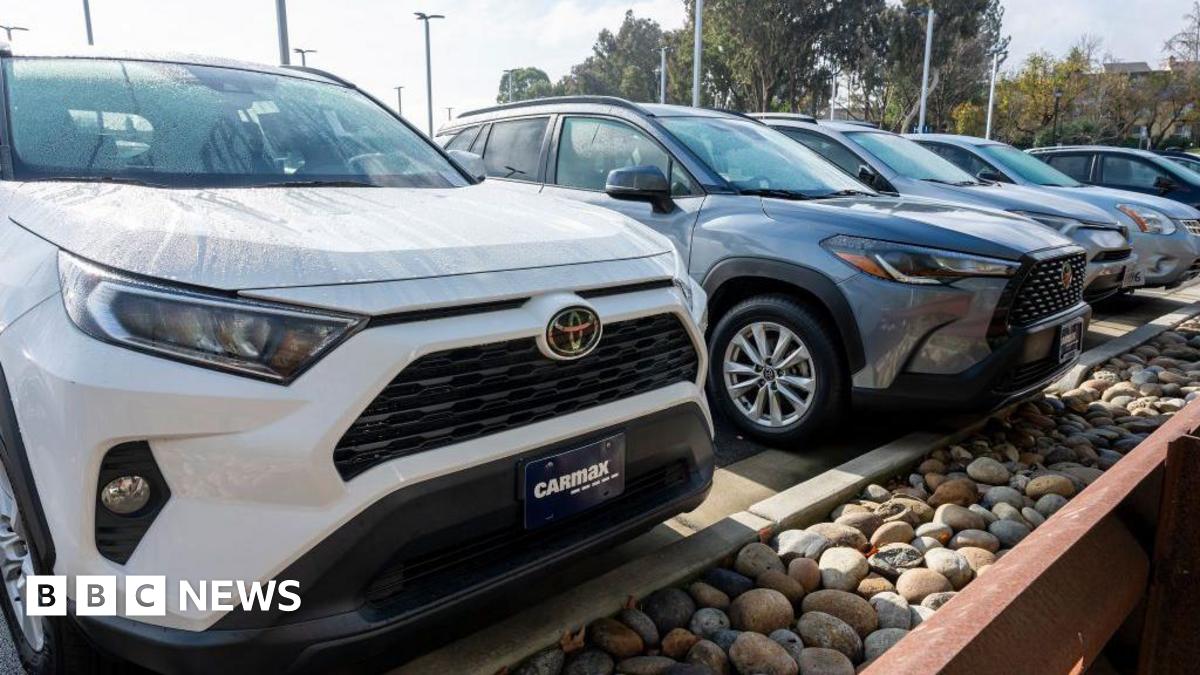US Car Imports Face 25% Trump Tariff: A Blow to Global Automakers
The automotive industry is bracing for a significant impact following the re-imposition of a 25% tariff on imported cars from the European Union and other countries. This move, a resurgence of a policy enacted under the Trump administration, is set to significantly increase the cost of vehicles for American consumers and reshape the global automotive landscape.
A Resurgence of Protectionist Measures:
The 25% tariff, initially implemented in 2018, was suspended under the Biden administration. Its reinstatement marks a renewed focus on protectionist trade policies, potentially sparking retaliatory measures from affected countries. While the administration claims the tariffs are necessary to protect domestic automakers and jobs, critics argue they will ultimately harm consumers and hinder economic growth.
Impact on Consumers:
The immediate and most noticeable impact will be felt by American consumers. The increased cost of imported vehicles will likely lead to:
- Higher prices: Consumers will pay substantially more for a wide range of imported vehicles, from luxury cars to smaller, more fuel-efficient models.
- Reduced choice: The higher cost may limit the availability of certain models, particularly those not manufactured domestically. Consumers may find themselves with fewer options and less competitive pricing.
- Inflationary pressures: The increased cost of cars could ripple through the economy, contributing to broader inflationary pressures.
Effects on Global Automakers:
The tariff presents a major challenge for global automakers with significant manufacturing and export operations in Europe and other affected regions. Companies like BMW, Mercedes-Benz, and Volkswagen, which heavily rely on US sales, could see a significant decrease in profitability. This could force them to:
- Increase prices: To offset the tariff, manufacturers may raise prices, further impacting consumers.
- Reduce exports: They may choose to reduce the number of vehicles exported to the US, impacting their market share.
- Restructure operations: Some may be forced to restructure their global operations, potentially shifting production or investments to other markets.
Political and Economic Ramifications:
The re-imposition of the tariff carries significant political and economic ramifications:
- Trade tensions: The move could escalate trade tensions with the EU and other countries, leading to retaliatory tariffs on US goods.
- Economic uncertainty: The increased uncertainty surrounding trade policy could negatively impact business investment and consumer confidence.
- Job security: While proponents argue the tariffs will protect domestic jobs, critics warn they could lead to job losses in related industries and ultimately harm the overall US economy.
Looking Ahead:
The long-term impact of the 25% tariff remains to be seen. However, it is clear that the decision will significantly alter the landscape of the US automotive market. The coming months will be critical in assessing the full extent of the economic and political consequences of this protectionist measure. Further analysis and observation are needed to determine the effectiveness and long-term sustainability of this policy. The situation calls for careful monitoring and a comprehensive understanding of its cascading effects on the global economy.
Keywords: US car imports, 25% tariff, Trump tariff, European Union, automakers, consumer impact, trade war, protectionist policy, global economy, economic impact, automotive industry, Biden administration.

